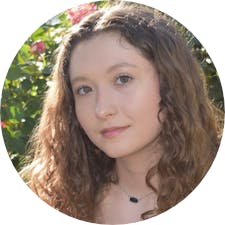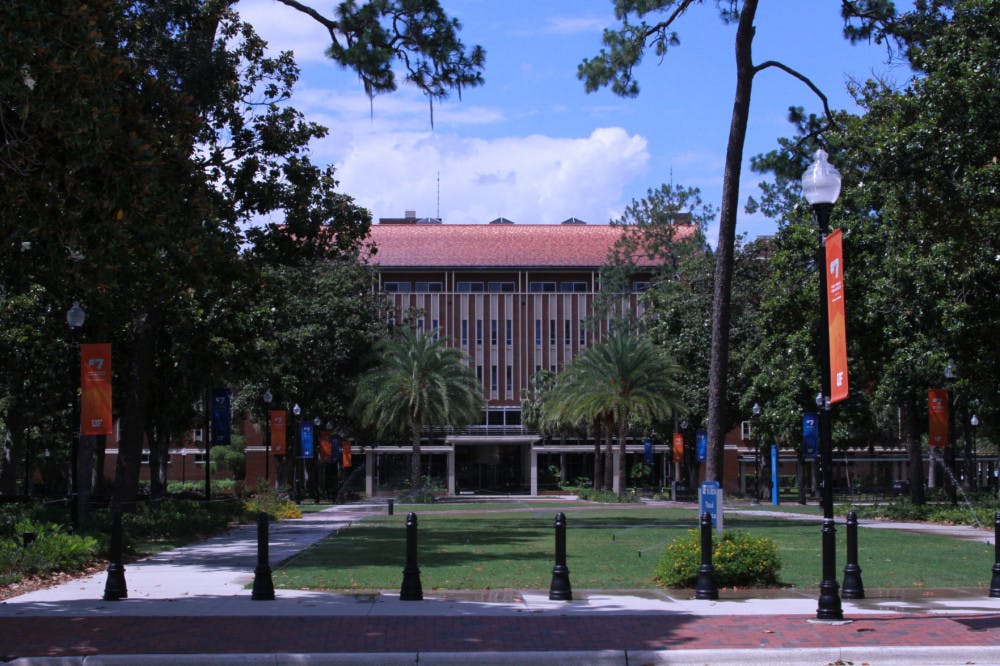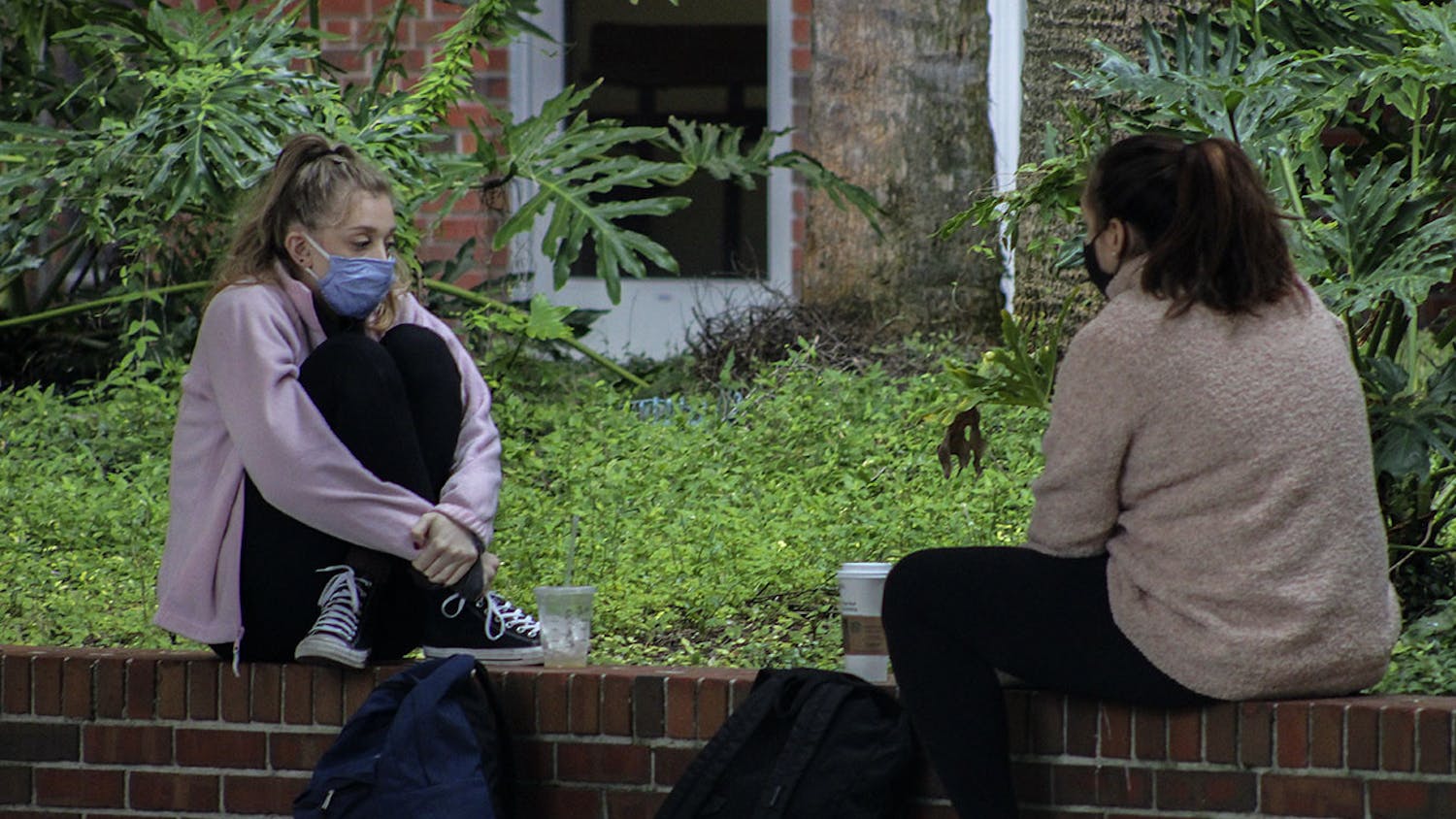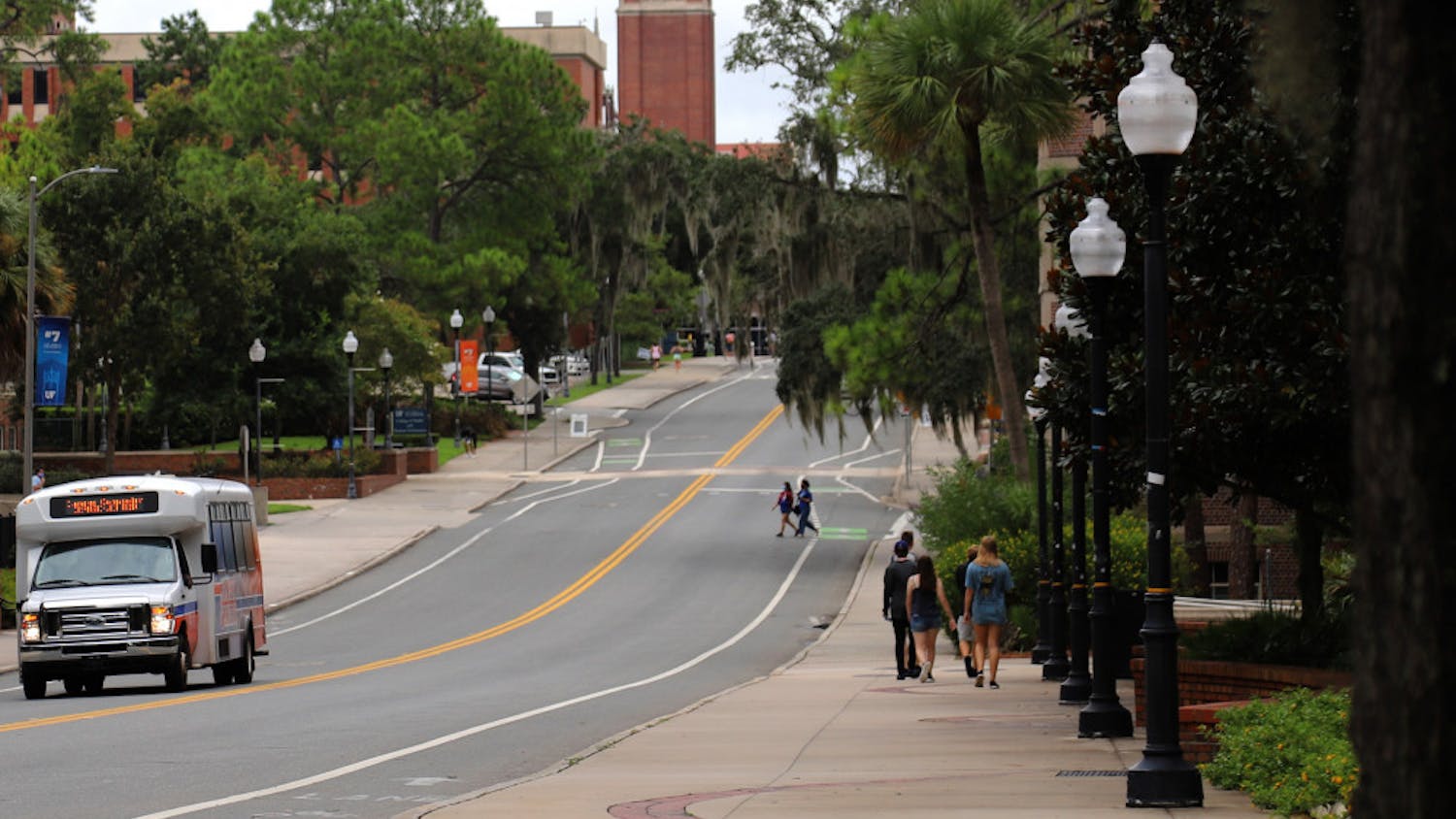UF could return to a pre-pandemic world with the start of the Summer B 2021 semester.
Some of UF’s face-to-face courses, which begin June 28, will return back to normal capacity levels, according to an email sent to a course scheduling listserv from Colin Yokomi, UF’s assistant university registrar, and several departments across campus.
An academic schedule will be released mid-March, UF Provost Joseph Glover said at a UF Senate Faculty meeting Thursday.
It is unclear if masking will still be mandatory and which courses this will affect. UF Spokesperson Cynthia Roldán did not answer questions about what the university means by a return to normalcy; what masking, capacities, cleaning and social distancing will look like; the classes that will be affected; what encouraged the university to make these decisions nor the medical professionals who were consulted about this matter.
Roldán wrote in a statement Friday that UF is still finalizing its Summer class plans.
“We will continue to monitor developments with vaccines and conditions with the virus, and we will announce plans for this summer when we have more certainty,” Roldán wrote in an email.
Summer A and C courses will follow room capacities set by the Centers for Disease Control and Prevention, according to Yokomi’s email.
At the faculty meeting, Glover said UF’s COVID-19 guidelines for Summer B and Fall would be “relaxed,” but did not give any specific plans. Glover and the university are following the guidance of a medical advisory group, which currently approves of their future plans, he said.
“At the moment, on the advice of the medical advisory group that we consult every week, the Summer A term we will continue to operate as though we are in the midst of the pandemic, but in Summer B, we will commence a return to normalcy,” Glover said.
The university will consult the medical guidance committee for the last time in mid-May before solidifying these plans, Glover said.
“As I said, we do consult with them every week, and every week, we ask them, ‘Should we change course?’” he said. “In fact, we consulted with them today, and asked that question, and the answer was no.”
Despite the university’s plans for Summer B, it announced its Center for Precollegiate Education and Training, or CPET, Summer programs would not permit overnight stays because of COVID-19 safety precautions, according to its website. CPET will still offer online youth programs.
During the meeting, Dr. Michael Lauzardo, UF’s director of Screen, Test & Protect, said the university is looking at Fall like Summer B and remaining optimistic. Through vaccine distribution, Laurzardo believes herd immunity, which occurs when a significant number of people are immune to the virus, can be achieved by early Summer, he said.
However, Lauzardo said it’s unclear if everyone will be vaccinated by Summer. He said 750 to 1,000 random students could be chosen for a clinical trial testing if college students can be infectious post-vaccine, but otherwise emphasized patience.
Although there are still unknowns and his mind could change based on the data, Lauzardo believes masks may no longer be worn by Fall, he said.
“It’s not unrealistic to think that we’re going to be out of this by the Fall and that things will be different,” Lauzardo said.
Lauzardo’s comments come after the CDC released a study Feb. 10 stating double masking could better prevent the spread of COVID-19. While the university is aware of this guidance, it does not plan to change current mask protocols.
Corey McZeal, a lecturer in the department of sociology and criminology, law and society, will be teaching Principles of Sociology during Summer B, he said. When McZeal first applied to teach the course, it was scheduled to be online; however, in January, his department informed McZeal it would be taught face-to-face instead, he said.
McZeal said he was not shocked by the change. This semester, he is teaching two courses in person and is not worried about the Summer teaching style because it’s what he’s used to. McZeal is unsure what COVID-19 restrictions will be enforced in Summer and assumes social distancing will not be in effect, he said.
“We haven’t gotten any guidance on that yet, so I’m just kind of anticipating that it’s going to be like COVID is over,” he said.
In the past, the course’s capacity has been 150 students, McZeal said. He does not believe it will be any different for Summer.
Frank Bosworth, interim director of the School of Architecture, wrote in an email that he also has limited information about the university’s plan. However, the university expects the school to offer face-to-face courses at standard capacities, Bosworth wrote in an email.
“At this time we have not discussed the impact of this, nor do I have a sense of how the faculty feel about it,” he wrote in an email.
Matthew McKay, a doctoral student and graduate teaching assistant in the department of geography, said the university told his department to mimic Summer 2019 when planning for Summer B. It will have discretion over Summer A, meaning the department can choose to teach online, he said.
According to the information McKay received in an email from an academic assistant Feb. 4, both Summer A and Summer B will each have one course face-to-face, he said. The Summer A course will have two sections, McKay said.
However, McKay himself will be teaching all online during Summer A, he said.
“As much as I would rather go 100% back to normal life, I don’t think it’s safe to do so for one thing,” he said. “I know it’s not.”
Contact Juliana Ferrie at jferrie@alligator.org. Follow her on Twitter @juliana_f616.

Juliana Ferrie is a second-year UF journalism student. She is excited to be working for The Alligator as the Santa Fe Beat reporter. In her free time, you can find her reading or listening to music.



![[Courtesy of The Agency]](https://snworksceo.imgix.net/ufa/aeceb1c3-dda2-479b-986c-24363ea3a2e1.sized-1000x1000.jpg?w=1500&ar=16%3A9&fit=crop&crop=faces&facepad=3&auto=format)


